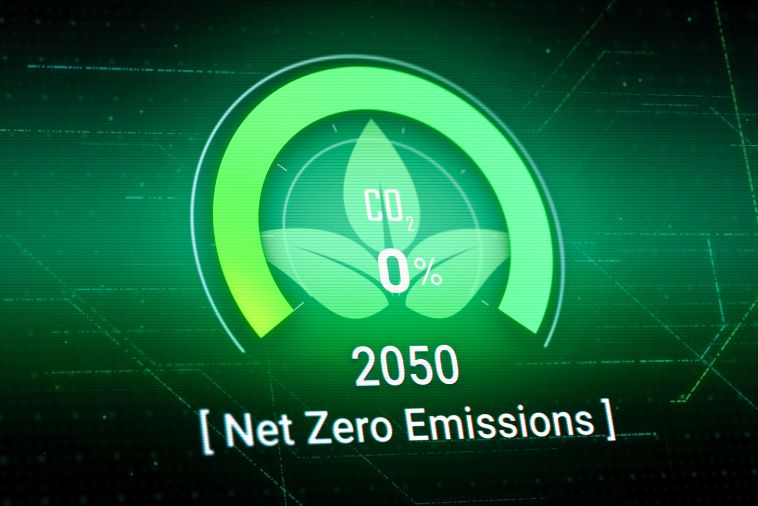The United Kingdom’s commitment to achieving Net Zero emissions by 2050 has been met with optimism, challenges, and opportunities. As a leading firm of expert energy consultants, we have witnessed the unfolding of policies and strategies to help the nation reach this ambitious goal. So, what are the UK’s net zero commitments, the key strategies being employed, and the implications for businesses and consumers?
Understanding the Net Zero Commitment
In June 2019, the UK became the first major economy to enshrine the net zero target into law under the Climate Change Act 2008. The commitment aims to reduce the country’s greenhouse gas (GHG) emissions to “Net Zero” by 2050. This means that any remaining emissions will need to be balanced by removing an equivalent amount from the atmosphere, either through natural processes like afforestation or technological solutions such as carbon capture and storage.
Key Strategies for Achieving Net Zero
The UK government has outlined several strategies to help the country reach its net zero target. Some of the main approaches include:
Decarbonising the power sector
The UK has made significant strides in reducing the carbon intensity of its power generation by phasing out coal-fired power stations, increasing renewable energy capacity, and investing in nuclear energy. The UK has the largest offshore windfarms in the world, producing 10GWH a year. Currently, over 40% of our energy comes from renewable sources. The focus will be on further expanding the share of low-carbon electricity generation. This success is a result of our CfD regime, run by LCCC, that guarantees the price that operators get for their renewable energy resulting in lower investment risk.
Accelerating the transition to electric vehicles (EVs)
The UK has set a target to ban the sale of new petrol and diesel cars by 2030. To facilitate the transition, the government is investing in charging infrastructure, offering financial incentives for EV buyers, and supporting innovation in battery technology. 15% of all new cars sales are electric, which equates to approximately 1.25 million cars that need to be plugged in to charge. Additionally, there are 40,000 Electric Vans that also need supporting infrastructure. “At the end of May 2023 the UK had 43,626 charging points with across 25,413 charging locations. This represents a 38% increase in the total number of charging devices since May 2022.” – Zap Map
Retrofitting homes and buildings:
The built environment is a major source of emissions. The UK is implementing measures to improve energy efficiency and promote low-carbon heating solutions in both new and existing buildings. These measures include the roll out of smart meters, a project that Engage Consulting are proud to have been part of, as well as the design of new and innovative tariffs and the growing market for smart energy devices.
Supporting low-carbon industries:
The government is investing in research, development, and deployment of low-carbon technologies to help drive innovation and create new opportunities in the clean energy sector.
Encouraging carbon capture, usage, and storage (CCUS)
The UK aims to become a world leader in CCUS, which will play a crucial role in achieving net zero by capturing and storing CO2 from industrial processes and power generation.
Implications for Businesses and Consumers
The transition to a net zero economy presents both challenges and opportunities for businesses and consumers. Businesses will need to adapt their operations to align with the Net Zero target by investing in energy efficiency measures, adopting low-carbon technologies, and exploring new markets in the clean energy sector. Consumers will need to make lifestyle changes, such as embracing EVs, improving the energy efficiency of their homes, and considering the carbon footprint of their consumption choices.
The UK’s Net Zero commitment is both ambitious and necessary in the face of the global climate crisis. By embracing a comprehensive strategy that includes decarbonising the power sector, promoting electrification of transport, improving energy efficiency in buildings, and investing in low-carbon technologies, the UK is well on its way to achieving this goal. Our energy consultants are at the heart of the transformation of the energy landscape and look forward to continuing to support the industries, businesses and their consumers in their journey towards a sustainable future; get in touch with our team today.
